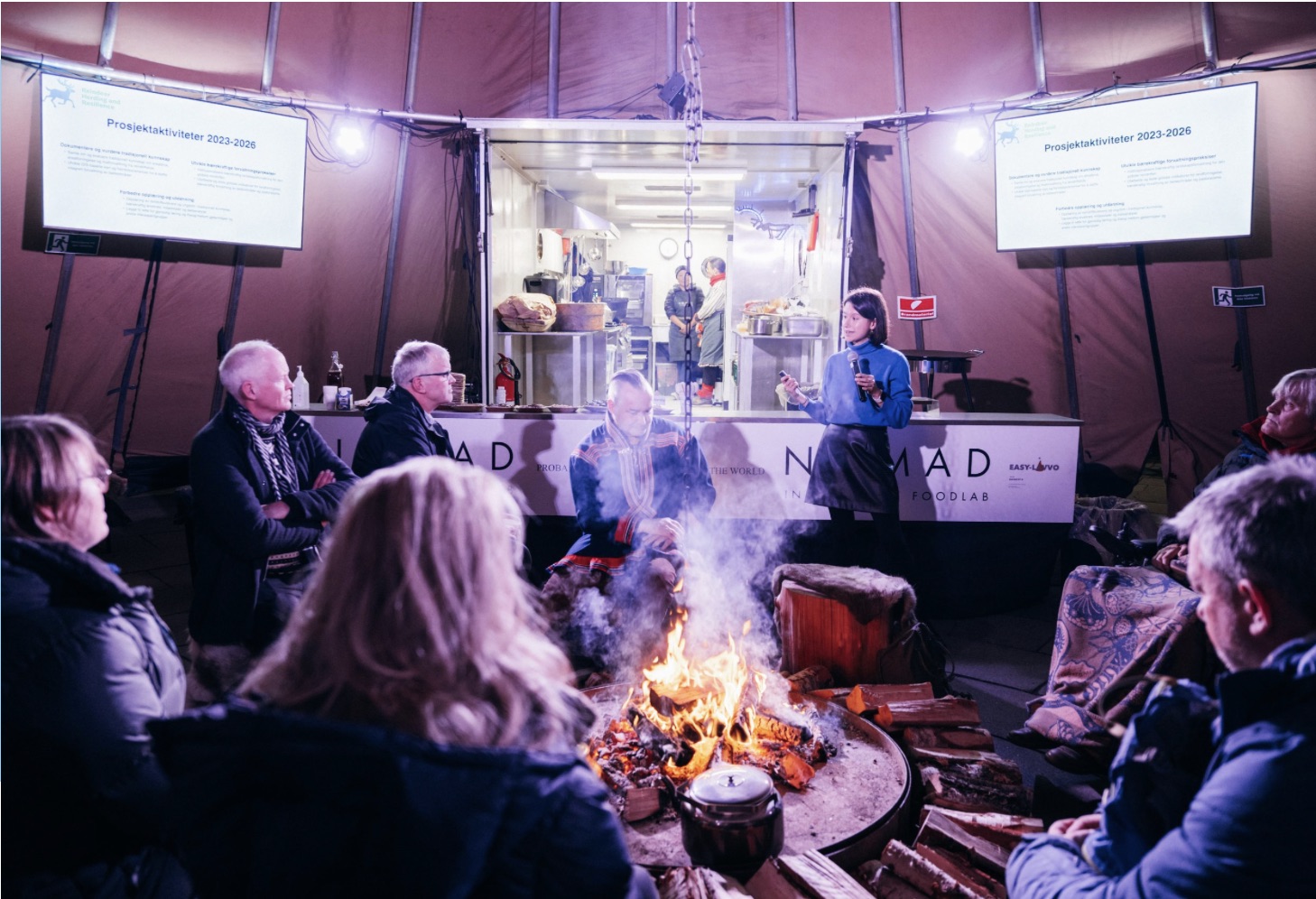Key leaders in the Reindeer Herding and Resilience project, funded by the Global Environment Facility (GEF) and implemented through the United Nations Environment Programme (UNEP), briefed Norway’s parliamentarians, politicians and academia members on the initiative’s progress and impact.
The event was attended by the second vice-president of the Norwegian Parliament, Nils T. Bjørke (SP), Lars Haltbrekken (SV), professor Tor Benjaminsen (NBMU), and Bjørn Olav Megaard, Director General of the Department of Indigenous and National Minority Affairs at the Ministry of Local Government and Regional Development. Representatives from Local Government and Regional Development, Ministry of Foreign Affairs, Arctic Council, Ministry of Fishery, Ministry of Climate and Environment, NORAD, University of Oslo and private business were also present.
Held at the NOMAD FoodLab, in front of the Parliament (Stortinget), the informal dinner and presentation spotlighted global initiatives led by the International Centre for Reindeer Husbandry (ICR), World Reindeer Herders (WRH), the UArctic EALÁT Institute, and the GEF-UNEP Reindeer Herding and Resilience Project.
Reindeer Herding and Resilience Project focuses on addressing land degradation, peatland deterioration, and bolstering the resilience of reindeer herding communities. It emphasises traditional knowledge systems, biodiversity preservation, and adaptive strategies for Arctic and sub-Arctic ecosystems.
During the presentation, Anders Oskal, ICR Executive Director, provided a rich overview of the history of reindeer herding civilization and peoples across the world. His presentation focused on the groundbreaking efforts of the International Centre for Reindeer Husbandry and World Reindeer Herders in reindeer herders’ capacity building and representation through international collaboration and partnerships with top world institutions such as Harvard University and American Museum of Natural History.
Marina Tonkopeeva, project leader of the GEF-UNEP Reindeer Herding and Resilience Project (RHR), highlighted the project’s remarkable achievements in 2023-2024 (see Progress Report here). She detailed the program’s success stories in outreach and dissemination and outlined ambitious plans for the coming year. Marina Tonkopeeva touched upon the project’s top priorities: documentation and communication of reindeer herders’ traditional knowledge, development of sustainable land management practices in reindeer herding areas, and enhanced youth training.
Dr. Prof. Svein Mathiesen delved into the millennia-long traditions of Indigenous nomadic reindeer husbandry. His discussion emphasised how traditional knowledge has been a cornerstone of the resilience and adaptability of reindeer herding communities amid climatic and societal shifts.
The event underscored the critical role of reindeer herding in addressing global challenges such as land degradation and peatland deterioration, biodiversity loss, food security, and climate resilience. Parliamentarians Nils T. Bjørke (SP) and Lars Haltbrekken (SV) expressed their appreciation for the insights shared and the innovative approaches being implemented globally and locally. The Reindeer Herding and Resilience presentation was organised back to back with the Norwegian Parliament’s open hearing about the Parliament’s Truth and Reconciliation report.
The collaborative efforts of ICR, WRH, UArctic EALÁT Institute, and Reindeer Herding and Resilience Project continue to demonstrate the global importance of safeguarding reindeer herding knowledge and practices for future generations.
Source: Reindeerherdingandresilience.org
Photo credit: Andreas Ausland, ICR



